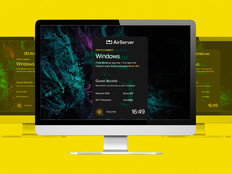Meters Get Smart
Meet the new high-tech parking meters: They run on solar power, house a safe for coins, and also accept credit and debit cards and prepaid smart cards. And they notify parking services when repairs are needed.
“With wireless communication, we always know how much money is in the meters,” says Karen Moore, Berkeley, Calif.’s parking services manager. “The meters tell us when they reach the desired threshold for collecting money and when there’s a problem like a paper jam.”
Many cities choose “Pay and Display” meters. After drivers pay, the smart meters dispense perforated receipts with the expiration time. Drivers peel off a sticky label and tape the receipt to the inside of a car’s curbside windows, says Nolan Mackrill, division manager of parking enforcement for Portland, Ore. Drivers keep the smaller portion of the receipt to remind them when their meters expire.
In Coral Gables, Fla., residents can bypass parking meters entirely. A driver registers for the service online or over the phone by providing credit card, license plate and other information. Then he or she purchases parking time by calling the phone number and punching in numbers found on the meter adjacent to their vehicle, says William Carlson, the city’s parking director. If time runs out, the driver gets a phone call or text message, asking if he or she wants to pay for more parking. After returning to the car, the driver calls the number to end the parking session.
RETURN ON INVESTMENT
City parking officials say the new meter technology is worth the investment. In Portland, parking revenue jumped from $7.5 million to $10.8 million, says Keith Ehrensing, program coordinator, parking operations, Office of Transportation.
Berkeley’s annual parking revenue had declined from about $3 million to almost half that in the past decade because of jammed meters. Since the new meters are harder to tamper with, revenue is rising again, Moore says.
Portland and Berkeley did not have to invest in technology infrastructure. Their smart meters use built-in wireless modems to send credit and debit card transactions to their vendors’ servers. The vendors transfer the funds to the cities’ bank accounts and charge a monthly fee. Parking officials retrieve financial data and each meter’s status through a Web site.
The vendor Coral Gables uses to host the service charges drivers 25 cents per parking session. The city spent about $3,000 to buy 15 handheld computers, so parking enforcement officers can wirelessly connect to the vendor’s servers.
Smart meters offer “better accounting and easier collections, and maintenance is minimal,” says Berkeley’s Moore.







